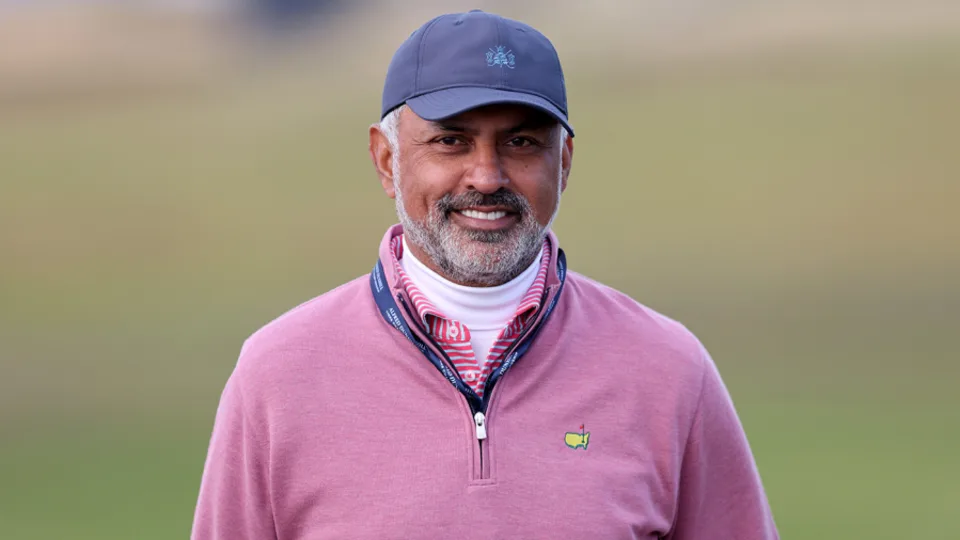London Spirit Investors Eye Hundred as Cricket’s Next Billion-Dollar League

The lead investor behind London Spirit's £144 million acquisition has declared ambitious plans to help transform the Hundred into a global sporting powerhouse, potentially rivaling the Indian Premier League (IPL).
Nikesh Arora, CEO of cybersecurity giant Palo Alto Networks and head of the 'Tech Titans' consortium, said his group believes the Hundred can become a "multi-billion dollar product" by combining cricket's unique appeal with tech-driven innovation and world-class business expertise.
The consortium acquired a 49% stake in London Spirit earlier this year in a high-profile auction that saw them outbid major global players including Sanjiv Goenka’s RPSG Group. Now joint operators with the MCC, the Tech Titans’ investment marks the start of a new era in English cricket, with operational control of the franchise set to officially transfer from the ECB to the joint venture on October 1.
Spirit of the Future
Arora and around 15 consortium members attended Lord’s this week to watch the Hundred’s opening games, where London Spirit’s women beat Oval Invincibles but the men were dismissed for just 80. Despite the rocky start, Arora was upbeat:
“We’ve never had buyer’s remorse. This is a way to get involved with one of the most storied and hallowed grounds in the world. It’s about bringing our passions to our work.”
The investment group includes some of Silicon Valley’s biggest names, such as the CEOs of Adobe, Google, and YouTube. Arora was joined by Satyan Gajwani, vice-chairman of Times Internet and co-founder of Major League Cricket, who emphasized the value of involving private investors in the sport’s evolution:
“Bringing in stakeholders beyond governing bodies has almost always improved products,” Gajwani said. “You’ve got best-in-class investors who understand sport, business, and entertainment.”
Targeting the IPL Model
Arora said the consortium sees the Hundred as having untapped global potential, comparing its growth trajectory to the IPL, which also started from scratch before becoming a multi-billion dollar juggernaut.
“The IPL started from nowhere. Why couldn’t this be that product?” Arora said. “The ECB incubated it, which is great. But now, with eight new investors, there's room for optimization and innovation.”
The eight Hundred franchises were collectively valued at around £975 million ($1.3 billion), with six deals already signed off. Cain International and Reliance Industries are expected to complete purchases of Trent Rockets and Oval Invincibles respectively after the 2025 season.
Fresh Look for London Spirit
Chair Mark Nicholas has promised MCC members a major relaunch of the franchise. While the "London Spirit" name is expected to remain for now, new kits and sponsors are on the way, potentially featuring nods to MCC’s traditional egg-and-bacon colours.
Eoin Morgan, a former England captain, has joined the new Spirit board, alongside Arora, Gajwani, Silver Lake co-CEO Egon Durban, MCC CEO Robert Lawson, Julian Metherell, and another MCC nominee. Metherell will serve as board chair.
Arora stressed that while the consortium is a minority shareholder, it brings “passion and experience” to the table:
“They [MCC] are 51% shareholders. We let them take the lead… but we’re here to help build something special.”
The Indian Market and Global Growth
Gajwani acknowledged that the Hundred’s core audience remains domestic, but said unlocking the Indian market — particularly access to Indian players — could dramatically boost the tournament’s global profile and broadcasting value.
“There are a number of Indian players excited about the idea of playing in the Hundred,” he said, though he admitted the “economics and contracts” remain complex. ECB chair Richard Thompson recently said it was "a matter of time" before India’s top players take part.
Despite their clear focus on modernizing and commercializing the Hundred, both Arora and Gajwani insisted they remain traditional cricket fans at heart.
“Half our consortium grew up watching Gavaskar, Tendulkar, and now Ben Stokes — and we still watch cricket at 3am in California,” Arora said. “This is our sport.”
A New Chapter for English Cricket
With tech leaders, private equity firms, and global sports entrepreneurs joining the ownership table, the Hundred now stands at a pivotal point. While some traditionalists remain skeptical of its format, few can ignore the influx of capital and ambition reshaping the competition.
As Gajwani summed it up:
“Cricket has this interesting tension between history and future. But both have their place — and we believe the Hundred’s time is just beginning.”